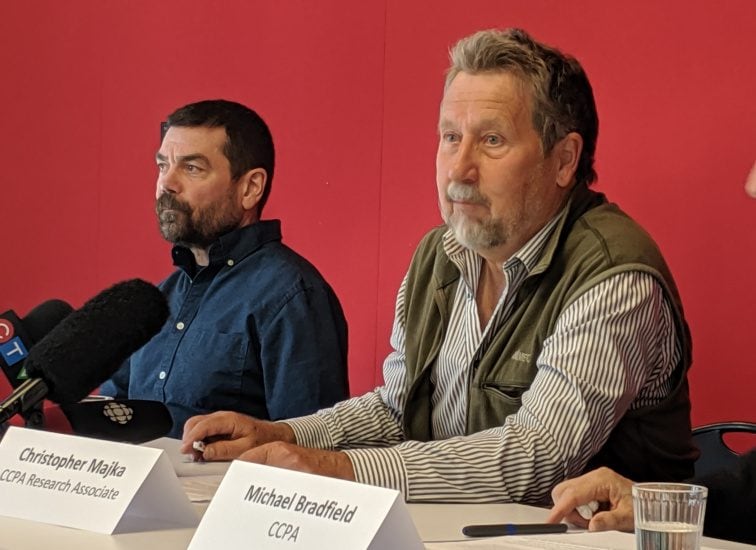
KJIPUKTUK (Halifax) – A newly published report suggests that taxpayers will pay more to build and finance the proposed Highway 104 twinning between Pictou and Antigonish as a Public Private Partnership (P3) than if a more traditional approach were to be followed.
The report, aptly titled Highway Robbery, authored by Christopher Majka and published by the Nova Scotia chapter of the Canadian Centre for Policy Alternatives (CCPA) also looks at the Cobequid Pass Toll Highway, a P3 project that was initiated in the mid-nineties.
There too Majka, echoing conclusions by the Auditor General, found no evidence that the P3 approach was more cost effective or efficient. In fact, Majka believes that the province could have saved $232 million had the toll highway been built, financed, operated and maintained as a regular highway.
These savings would have been realized through government’s ability to borrow money at much lower interest rates than the private sector, and reduced cost to build and operate (and pay for the management of) the toll system.
Majka is not the first to raise concerns about the P3 approach to major government initiatives. Here in Nova Scotia the Auditor General issued a scathing report criticizing the P3-built and operated schools in 2010, particularly taking issue with out of control costs and the way contracts were managed.
At a press conference, held at the Central Library in Halifax this morning, Majka explained that findings from his Cobequid Pass analysis fed into many of his predictions around the current Highway 104 twinning project.
The government earlier announced that the newly twinned highway will not be financed through tolls.
Majka raised concerns about the outsourcing of maintenance of the newly twinned highway to a private consortium, with Majka pointing to bad experiences in Ontario in the mid-nineties.
“These experiences indicate that there are potential points of conflict between the imperatives of public safety on the one hand and the cost saving imperatives of private contractors on the other,” Majka said.
Steve Joy, president of the Nova Scotia Highway Workers Union CUPE Local 1867, agreed.
“This raises serious questions about highway safety that the government must address. There is no room for profiteering where it comes to public safety. the government has to act in the interest of the public first, not the interest of private corporations,” said Joy.
Joy also raised concerns about accountability. Earlier CUPE issued a Freedom of Information request for the Value for Money report, an cost benefit analysis purportedly used to justify the chosen outsourcing approach.
“It is not enough for the government to release just one number, and redact 120 pages,” said Joy. “When is the full report released?”
Meanwhile, CUPE is still waiting for a similar FOIPOP request to see the Request for Proposals issued to the three shortlisted responders.
In this case CUPE has already been told that it will cost some $1,100 to pay for a civil servant to apply the many redactions that the department of Transportation and Infrastructure Renewal deems necessary.
Click here to download the CCPA report.
Two town hall events about the proposed Pictou-Antigonish stretch of Highway 104 take place in Antigonish on June 4 and in New Glasgow on June 5.
With a special thanks to our generous donors who make publication of the Nova Scotia Advocate possible.
Subscribe to the Nova Scotia Advocate weekly digest and never miss an article again. It’s free!



